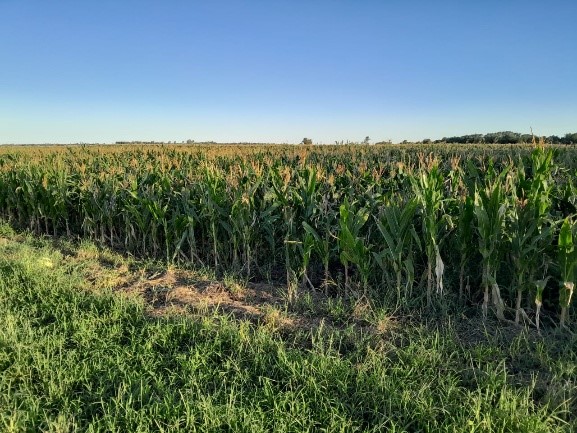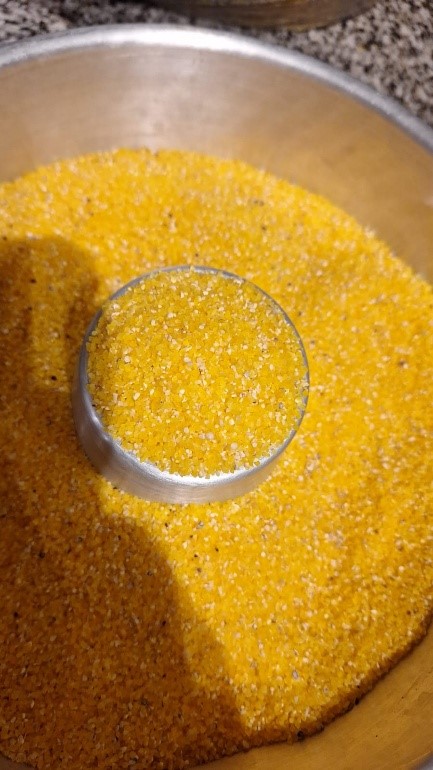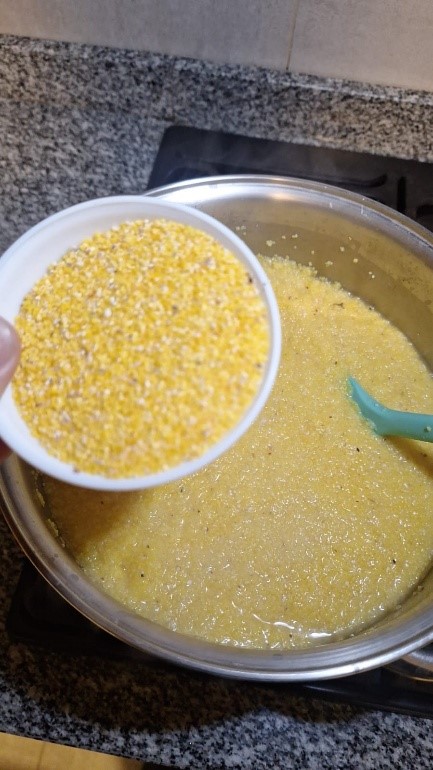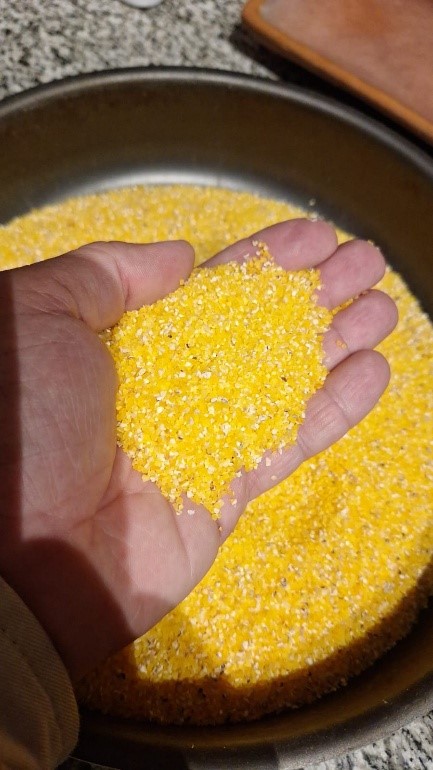Last Monday, October 20, within the framework of World Food Day, we held the virtual conversation “Maize as a bridge: knowledge, territories, and diversity,” to share the trajectory of Amancay maize and relaunch the work of the Maize Growers Network (Red de Maiceros). More than 30 producers, technicians, researchers, students, and organizations linked to seed development and production participated, forming a diverse space for exchange and collective reflection.
The guests were Daniel Presello, Enrico Cresta, and Milton Vélez, who represent different stages of The Amancay Path. Each contributed their view on the collaborative work that sustains this network and on the challenges of thinking about maize from the perspective of genetic, territorial, and cultural diversity.
Daniel Presello, an agronomist engineer and plant breeder, presented the objectives that the development of maize varieties within INTA Pergamino has had. Furthermore, he detailed the particularities of Amancay, an open-pollinated variety that synthesizes years of networked work. He underscored the importance of teamwork between institutions, technicians, and producers, especially to achieve materials that respond to the real conditions of agricultural systems and the needs of family and organic farming.

From his experience as an organic producer, Enrico Cresta—a member of the Maize Growers Network and part of the Bioleft team—recounted the process of evaluating Amancay in his field Altos Verdes (Córdoba). He pointed out that, although the 22/23 campaign was particularly adverse due to drought and soil degradation, the material showed good behavior under organic management and potential to continue selecting within those conditions. Enrico also highlighted the scarce availability of seeds developed specifically for organic systems and the need to strengthen networks that boost the production and circulation of locally adapted non-transgenic materials.
Milton Vélez, a family producer, shared his experience in the conditioning and food use of Amancay maize, highlighting its nutritional value and culinary possibilities. He showed examples of its transformation into polenta, tacos, noodles, and chicha-type fermented drinks, highlighting the importance of thinking about breeding not only from yield, but also from nutritional quality, and organoleptic aspects such as flavor, color, texture, etc.



During the conversation, exchanges took place regarding the importance of open-pollinated varieties for the sustainability of diversified agricultural systems, and regarding the need to generate varieties adapted to environments under water stress and degradation. Questions also arose about the availability of seeds and registration processes, where Bioleft’s role in promoting seed exchanges under open licenses was highlighted.
From Bioleft, the commitment to accompany the registration of the varieties generated in the Network was reaffirmed, with the purpose that they can be shared and multiplied collectively.
The meeting closed with enthusiasm and new proposals to strengthen the Maize Growers Network: expanding participatory trials, documenting results, deepening the link with cooking and nutrition, and continuing to generate spaces for dialogue between those who produce, research, and consume maize.
To watch the full conversation, you can do so here. To join the Network or receive news, you can contact Bioleft through the website or social networks.